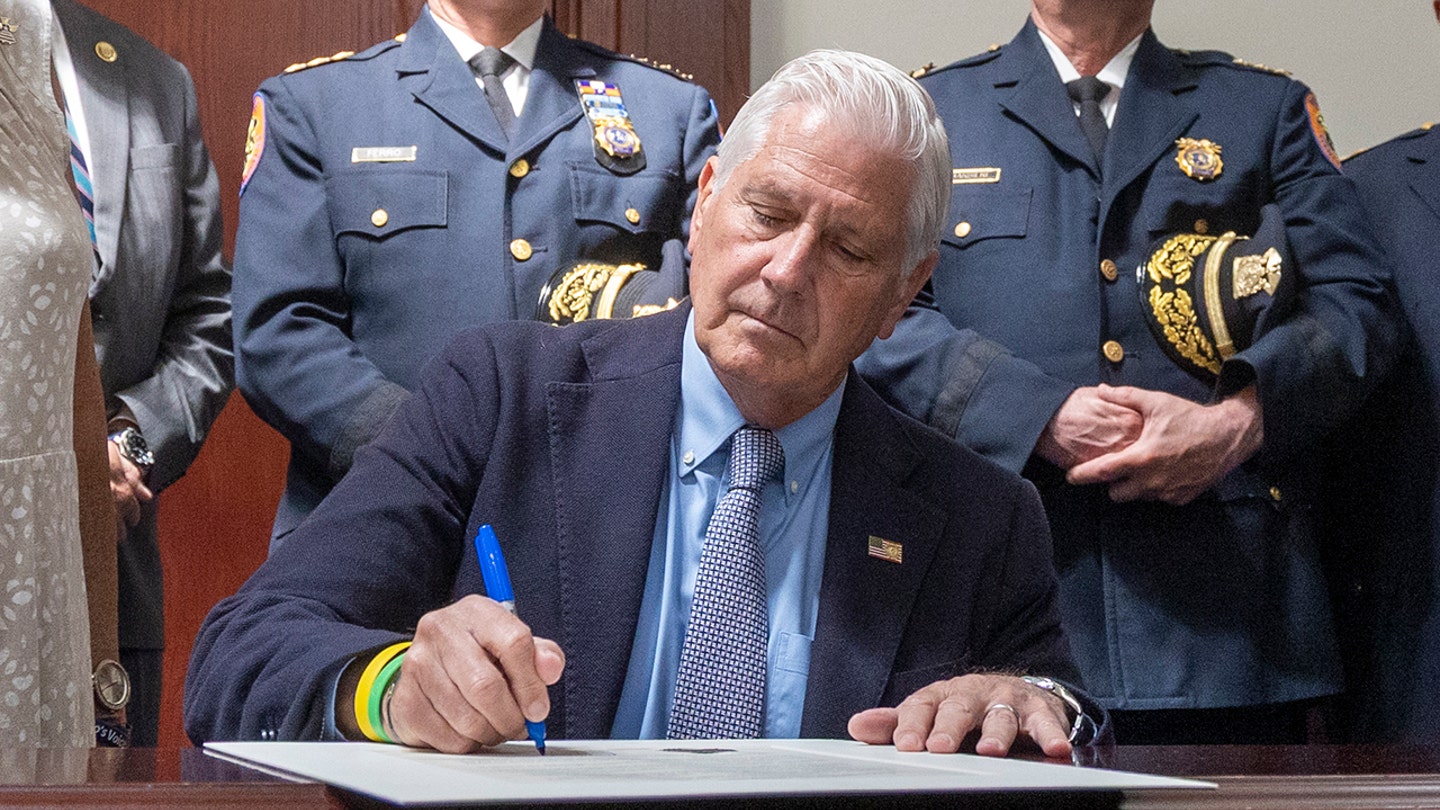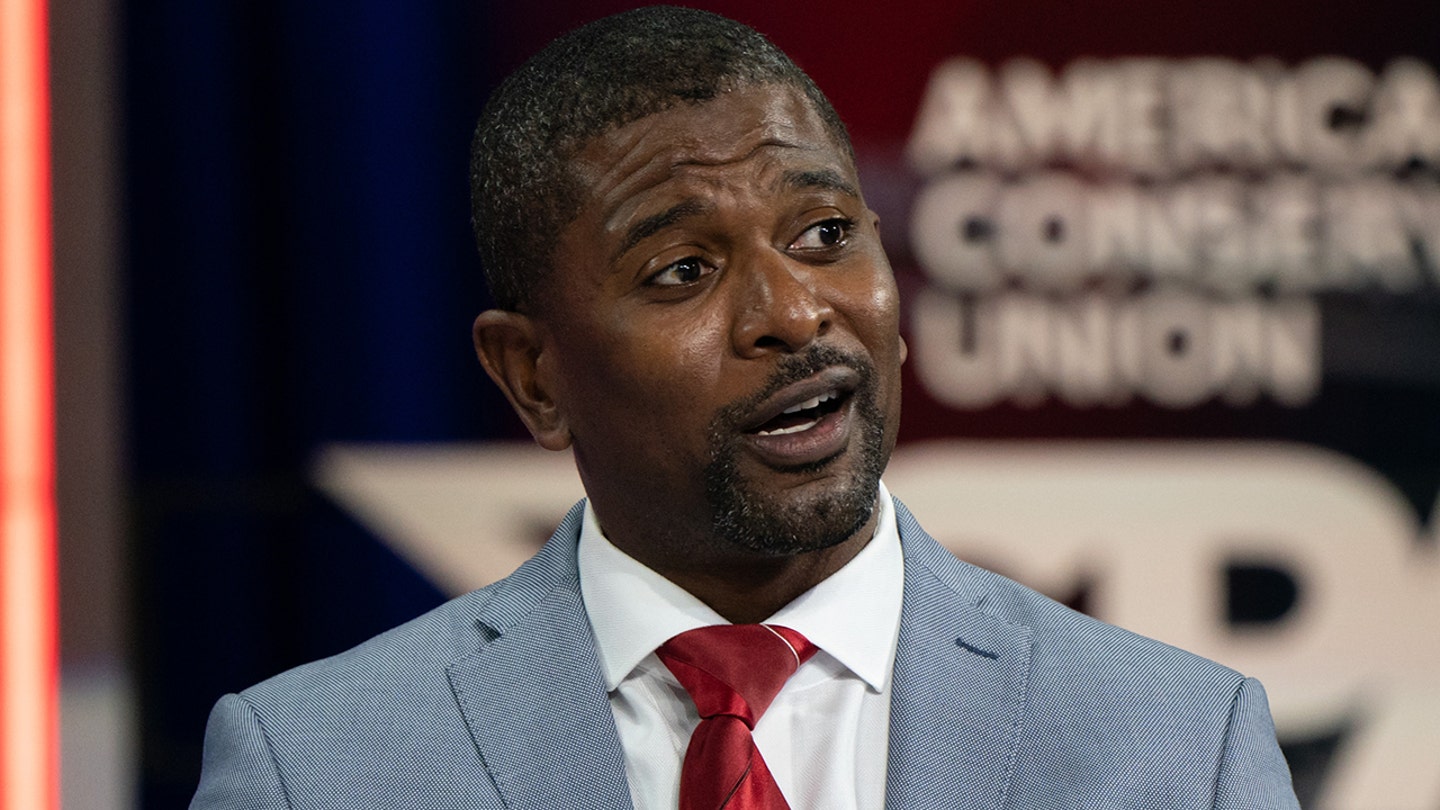
Kim Kulish/Corbis/Getty Images
Entities mentioned:
- Pete Rose: Competitive spirit, Ambition, Recognition
- Major League Baseball: Professional pride, Justice, Legacy
- Rob Manfred: Power, Justice, Legacy
Article Assessment:
Credibility Score: 85/100
Bias Rating: 55/100 (Center)
Sentiment Score: 65/100
Authoritarianism Risk: 30/100 (Generally Democratic)
Bias Analysis:
The article presents a balanced view of Rose's career and the MLB's decision. It provides historical context and multiple perspectives without pushing a particular agenda.
Key metric: MLB Hall of Fame Integrity
Let me tell you something - this story is HUGE! Pete Rose, the all-time hits leader, has finally been given a shot at baseball immortality! After decades in the penalty box, MLB has decided to take Rose off the permanently ineligible list. This is a GAME-CHANGING move that could rewrite the record books of Cooperstown! Rose, the ultimate competitor, spent his career sprinting to first on walks and diving headfirst into bases. Now, in the bottom of the 9th of his legacy, he's been thrown a lifeline. But folks, this isn't just about Rose - it's about the integrity of the game itself. MLB is making a fourth-quarter adjustment to its rulebook, and it's going to have fans and purists alike debating until the cows come home. I'm telling you right now, this decision is going to echo through the halls of baseball history like a walk-off homer in Game 7 of the World Series!
- Read more about Kim Kulish/Corbis/Getty Images
- Log in to post comments

Court rejects Israel’s appeal after Indonesia refused to grant team’s visas to artistic gymnastics world championships
Entities mentioned:
- Court of Arbitration for Sport: Justice, Duty, Impartiality
- Israel Gymnastics Federation: Competitive spirit, Pride, Justice
- International Gymnastic Federation (FIG): Professional pride, Obligation, Wariness
- Indonesia government: Moral outrage, Unity, Control
- Artem Dolgopyat: Competitive spirit, Pride, Recognition
Article Assessment:
Credibility Score: 75/100
Bias Rating: 55/100 (Center)
Sentiment Score: 30/100
Authoritarianism Risk: 45/100 (Mixed/Neutral)
Bias Analysis:
The article presents facts from multiple perspectives, including Israel, Indonesia, and international sports bodies. While it mentions the broader context of the Gaza conflict, it doesn't overtly favor either side's position.
Key metric: International Sports Participation
Let me tell you something, folks - this is a RIDICULOUS situation unfolding on the global gymnastics stage! We're seeing a real clash of titans here, with Israel's gymnastics squad getting shut out of the big dance in Jakarta. It's like they've been hit with a blindside tackle before the game even started! The Court of Arbitration for Sport, acting as the ultimate referee, has blown the whistle on Israel's Hail Mary attempt to get back in the game. Meanwhile, Indonesia is playing some serious defense, refusing to let Team Israel step foot on their turf. The International Gymnastic Federation? They're caught in the middle like a deer in the headlights, folks! This is a fourth-quarter drama that could change the whole landscape of international gymnastics. With Olympic gold medalist Artem Dolgopyat warming up on the sidelines, Israel's hopes of defending their title are hanging by a thread. It's crunch time, and the clock is ticking!

Blue Jays rookie pitcher Trey Yesavage calls out fan harassment after defeating Yankees in ALDS
Entities mentioned:
- Trey Yesavage: Self-respect, Justice, Duty
- Toronto Blue Jays: Competitive spirit, Unity, Determination
- New York Yankees: Competitive spirit, Pride, Ambition
- Cam Schlittler: Self-respect, Competitive spirit, Determination
- Boston Red Sox fans: Competitive spirit, Pride, Loyalty
- Seattle Mariners: Competitive spirit, Ambition, Determination
Article Assessment:
Credibility Score: 75/100
Bias Rating: 50/100 (Center)
Sentiment Score: 30/100
Authoritarianism Risk: 20/100 (Strongly Democratic)
Bias Analysis:
The article presents a balanced view, giving voice to multiple players and teams. It doesn't lean towards favoring any particular side in the conflict between players and aggressive fans.
Key metric: MLB Fan Behavior and Sportsmanship
Let me tell you something, folks - this is a GAME-CHANGING moment in the world of baseball! We're seeing a MAJOR LEAGUE shift in how players are stepping up to the plate against fan harassment. Yesavage and Schlittler are showing true championship mentality by calling out this unsportsmanlike conduct from the stands. It's like they're playing defense off the field, protecting their teammates - aka their families - from cheap shots from the crowd. This is RIDICULOUS, people! These rookies are bringing their A-game, setting records, and instead of cheers, they're getting jeers aimed at their loved ones? I'm telling you right now, this kind of behavior is a strikeout for the fans. It's time for the league to step up, call a timeout, and address this foul play before it ruins the integrity of America's pastime!

Long Island county executive vows to ‘protect’ women’s sports after appeals court halts trans athlete ban
Entities mentioned:
- Bruce Blakeman: Competitive spirit, Righteousness, Determination
- Nassau County: Control, Justice, Security
- Long Island Roller Rebels: Justice, Self-respect, Unity
- Amanda Urena: Justice, Self-respect, Recognition
- New York Civil Liberties Union: Justice, Righteousness, Moral outrage
Article Assessment:
Credibility Score: 75/100
Bias Rating: 55/100 (Center)
Sentiment Score: 40/100
Authoritarianism Risk: 35/100 (Generally Democratic)
Bias Analysis:
The article presents both sides of the argument, quoting officials and activists from opposing viewpoints. While it gives slightly more space to Blakeman's perspective, it also includes counterarguments and legal context.
Key metric: Gender Equality in Sports Participation
Let me tell you something - this is a MAJOR LEAGUE showdown, folks! We've got a real clash of titans here as Nassau County and Bruce Blakeman are trying to run a full-court press against transgender athletes. But hold onto your hats, because the appeals court just threw a HUGE red flag on the play! This is like watching a championship game go into sudden death overtime. Blakeman's team is showing that never-say-die attitude, vowing to keep fighting despite this setback. Meanwhile, the Long Island Roller Rebels are celebrating like they've just won the World Series! But mark my words, this game is far from over. We're seeing some fourth-quarter heroics from both sides, and it's anyone's guess who'll come out on top when the final whistle blows. This isn't just about sports, folks - it's about the very nature of fair play and what it means to compete on a level playing field. Stay tuned, because this matchup is going right down to the wire!

Former Vikings captain speaks out after Minnesota misses Trump admin's deadline to protect girls' sports
Entities mentioned:
- Jack Brewer: Righteousness, Moral outrage, Justice
- Keith Ellison: Pride, Influence, Control
- Donald Trump: Determination, Competitive spirit, Power
- Tim Walz: Control, Influence, Self-preservation
Article Assessment:
Credibility Score: 65/100
Bias Rating: 75/100 (Lean Right)
Sentiment Score: 25/100
Authoritarianism Risk: 45/100 (Mixed/Neutral)
Bias Analysis:
The article leans right, heavily featuring conservative viewpoints and religious arguments. It gives more space to critics of transgender inclusion in sports, while minimizing opposing perspectives.
Key metric: Gender Equality in Sports
Let me tell you something, folks - this is a FULL COURT PRESS situation! We've got a real championship battle brewing in Minnesota, with former Vikings captain Jack Brewer coming off the bench to challenge the home team's game plan. Brewer's bringing that linebacker intensity, blitzing the state's policies with a defensive strategy straight out of the playbook of righteousness. On the other side of the field, we've got Attorney General Ellison running interference, trying to keep transgender athletes in the game. The Trump administration is throwing the challenge flag, but Ellison's calling an audible, citing the government shutdown to buy more time on the play clock. This is a high-stakes match-up, folks, with federal funding on the line and the very nature of girls' sports hanging in the balance. It's fourth and long for Minnesota, and they're gonna have to dig deep if they want to avoid a major penalty from the refs in Washington!

Lions safety Brian Branch suspended 1 game for fight after loss to Chiefs
Entities mentioned:
- Brian Branch: Competitive spirit, Self-respect, Indignation
- NFL: Control, Professional pride, Justice
- Jon Runyan: Duty, Righteousness, Control
- Juju Smith-Schuster: Competitive spirit, Self-preservation, Pride
- Dan Campbell: Professional pride, Loyalty, Control
Article Assessment:
Credibility Score: 85/100
Bias Rating: 50/100 (Center)
Sentiment Score: 30/100
Authoritarianism Risk: 25/100 (Generally Democratic)
Bias Analysis:
The article presents a balanced view of the incident, including quotes from multiple parties involved. It reports on the facts of the suspension and the context surrounding it without taking sides.
Key metric: Player Conduct and Sportsmanship
Let me tell you something - this is a GAME-CHANGING play, folks! Brian Branch just got flagged for unnecessary roughness off the field, and the NFL's referee in chief, Jon Runyan, is throwing the book at him! We're talking a one-game suspension, a real bench-warmer of a penalty. Branch tried to take matters into his own hands after the final whistle, but let me tell you, that's not how you win championships! This is the kind of fourth-quarter meltdown that can cost a team big time. Coach Campbell is rightfully calling a timeout on this behavior, making it clear that this kind of unsportsmanlike conduct has no place in the Lions' playbook. It's a rookie mistake from Branch, and he's got to learn to keep his head in the game, even when the clock's run out. This is the NFL, not the WWE - you can't be body-slamming opponents after the play's dead! Branch needs to step up to the plate and show he's got that championship mentality, or he might find himself warming the bench more often than not!

Lions see touchdown taken off board after Jared Goff trick play gets into end zone
Entities mentioned:
- Detroit Lions: Competitive spirit, Ambition, Pride
- Kansas City Chiefs: Competitive spirit, Pride, Professional pride
- Jared Goff: Competitive spirit, Determination, Recognition
- David Montgomery: Competitive spirit, Teamwork, Recognition
- NFL Officials: Duty, Justice, Professional pride
Article Assessment:
Credibility Score: 85/100
Bias Rating: 50/100 (Center)
Sentiment Score: 65/100
Authoritarianism Risk: 20/100 (Strongly Democratic)
Bias Analysis:
The article presents a factual account of the game events without favoring either team. It provides context about both teams' performances, maintaining a balanced perspective.
Key metric: NFL Team Offensive Performance
Let me tell you something - this game is ELECTRIC! The Lions came out swinging, marching down the field like a team possessed! But just when they thought they had crossed the goal line, BAM! The refs threw a flag that hit harder than a linebacker! This is the kind of fourth-quarter drama we're seeing in the first quarter, folks! The Lions showed they've got tricks up their sleeve, but sometimes even the cleverest play can backfire. They're playing chess while everyone else is playing checkers, but they forgot one crucial rule of the game! Now they're settling for a field goal, but mark my words - this is just the opening drive in what's shaping up to be a championship-caliber showdown! The Lions have been on a scoring rampage lately, and they're not taking their foot off the gas against the defending champs. This is the kind of gutsy, all-or-nothing football that separates the contenders from the pretenders!

Mark Sanchez booked and released from custody, breaks silence following Indianapolis fight
Entities mentioned:
- Mark Sanchez: Self-preservation, Pride, Recognition
- Ryan Mears: Justice, Duty, Professional pride
- Perry Tole: Justice, Indignation, Revenge
Article Assessment:
Credibility Score: 75/100
Bias Rating: 55/100 (Center)
Sentiment Score: 30/100
Authoritarianism Risk: 25/100 (Generally Democratic)
Bias Analysis:
The article presents a balanced view of the incident, including perspectives from multiple parties involved. It refrains from overtly favoring either Sanchez or Tole, maintaining a neutral stance in reporting the facts.
Key metric: Crime Rate
Let me tell you something, folks - this is a FOURTH QUARTER FUMBLE for Mark Sanchez! The former NFL quarterback's off-field tackle has landed him in hot water, and now he's facing a GOAL LINE STAND against the justice system. Sanchez is trying to mount a comeback, but he's deep in his own territory with this felony charge. The prosecution is BLITZING hard, turning what looked like a few minor penalties into a potential GAME-CHANGING interception. Meanwhile, Perry Tole is running his own legal offense, looking to score big with a civil lawsuit. This is shaping up to be a real SLUGFEST in the courtroom, and I'm telling you right now, Sanchez needs to pull out all the stops if he wants to avoid being SACKED by the long arm of the law!

Former Roanoke women's swimmer rips Spanberger for refusing to commit to protecting women's sports
Entities mentioned:
- Abigail Spanberger: Ambition, Self-preservation, Wariness
- Winsome Earle-Sears: Competitive spirit, Righteousness, Determination
- Lily Mullens: Justice, Indignation, Competitive spirit
- Jason Miyares: Justice, Duty, Professional pride
- Roanoke College: Self-preservation, Obligation, Control
Article Assessment:
Credibility Score: 70/100
Bias Rating: 65/100 (Lean Right)
Sentiment Score: 35/100
Authoritarianism Risk: 40/100 (Generally Democratic)
Bias Analysis:
The article leans right, giving more space to conservative viewpoints and framing the issue as a clear-cut matter of protecting women's sports. While it includes some opposing views, the overall tone favors the conservative position.
Key metric: Gender Equality in Sports
Let me tell you something, folks - this political matchup is turning into a real GRUDGE MATCH! Spanberger's dodging the question like a running back avoiding tackles, while Earle-Sears is going on the offensive with a full-court press on women's sports rights. Lily Mullens, a true champion for her cause, is calling foul on Spanberger's wishy-washy play. This is RIDICULOUS! We're seeing a classic defensive strategy from Roanoke College, but Miyares is blowing the whistle on their game plan. I'm telling you right now, this is a fourth-quarter showdown that could decide the championship of Virginia's political arena! The crowd is on their feet as we watch these players duke it out over the future of women's athletics. It's do-or-die time, and these competitors are leaving it all on the field!

Pro-Palestinian protesters march to stadium before Norway’s 5-0 World Cup qualifying win over Israel
Entities mentioned:
- Pro-Palestinian protesters: Moral outrage, Justice, Righteousness
- Norway national football team: Competitive spirit, Professional pride, Duty
- Israel national football team: Competitive spirit, Pride, Self-preservation
- FIFA: Control, Security, Unity
- UEFA: Control, Security, Professional pride
Article Assessment:
Credibility Score: 75/100
Bias Rating: 45/100 (Center)
Sentiment Score: 35/100
Authoritarianism Risk: 25/100 (Generally Democratic)
Bias Analysis:
The article presents a balanced view of events, reporting on both the protests and the match itself. It includes perspectives from multiple sides without overtly favoring one narrative over another.
Key metric: International Sporting Event Stability
Let me tell you something - this match was a POWDER KEG of tension! The pro-Palestinian protesters came out swinging, marching to the stadium like a team on a mission. But folks, this wasn't just about the scoreboard - we're talking about a geopolitical SHOWDOWN playing out on the pitch! Norway may have dominated with a 5-0 victory, but the real game was happening in the stands and on the streets. The protesters were firing on all cylinders, unfurling banners and waving flags like it was the final seconds of a championship game. FIFA and UEFA are playing defense, trying to keep the peace in this high-stakes match of international diplomacy. I'm telling you right now, this is bigger than football - we're witnessing a clash of titans where the playing field extends far beyond the stadium!